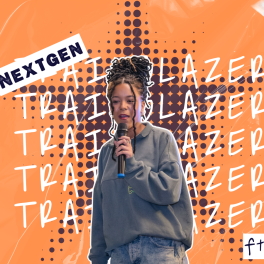
Please note: this article includes sensitive topics that some people might find difficult. Please visit our Resources Page for help.
I was greeted with a massive hug: "You're looking so much better!"
It wasn't a great start. Friends I hadn't seen in a while welcomed me into their home, where the hugs were swiftly followed by massive platters of food. I was encouraged to help myself "as I wished," but I felt it all evening. Little pushes to eat. Reminders that I can "have some."
"It's ok," they told me.
The problem is, they meant well. My oldest and dearest friends, who know I was diagnosed with anorexia nervosa aged 11, don't quite know how to handle me.
There are guidebooks for sufferers on how to spot symptoms and get help. Helpline BEAT, while woefully underfunded, has supported me over the years, as has the NHS. Big-time missing, though, is a handbook for friends and family members of sufferers - or maybe a handbook just can't exist, because every case is different.
Regardless, I figured I'd give this a shot. The NHS recently estimated up to 6.4% of the UK population suffers from an eating disorder, although this also includes bulimia nervosa and binge eating disorder, and not just anorexia nervosa. If you know someone who suffers from anorexia, it's worth approaching how you communicate to them with care. Even if you already "care."
In a nutshell, you're dealing with someone who is likely highly sensitive to any comments whatsoever regarding their appearance. Ordinarily, being told you look "well" or "better" would be a total positive. The anorexia sufferer may, however, interpret "well" as "fat."
"You've got colour in your face!" Same deal.
"You looked worse last time we saw you!" Might not go down well.
"It's always good to see you." Neutral, but probably safer.
Next up? Best not to comment on their food. If they're eating, do not congratulate them. While they might be at a recovery stage that welcomes encouragement, they might also feel you're belittling them. You also run the risk of making them feel self-conscious - to the point that they might punish themselves later and not eat.
The same goes for comments about what they eat. If they're eating cottage cheese on a tiny piece of toast and precisely five slices of apple, it could be all they can manage. Eating it in front of you might already be a challenge. Normalising eating with other people is far more constructive here. And what do people do when they eat? They chat - about random stuff.
Sure, you might have a sufferer friend who invites conversations about their illness or recovery. But if you're unsure, best not to bring up their disorder, especially with a prognosis - you are not a doctor. "You'll be fine" and "my cousin had it, she recovered" are well-meaning, but take a moment to consider how totally useless they are as statements. Possibly also upsetting.
Things you can say? Basically, anything you'd say to a friend whereby you don't keep bringing up their illness or disability. If you want to know about their progress, a simple: "How are you?" leaves the ball in their court. If they want to update on the situation, they will. If they don't, it'll be pretty clear by them talking about something else.
If you're a sufferer, do reach out and use available and free resources, and these don't just include your GP. Check out BEAT's links for more, and remember, you're not alone.
More for you
Support Young Creators Like This One!
VoiceBox is a platform built to help young creators thrive. We believe that sharing thoughtful, high-quality content deserves pay even if your audience isn’t 100,000 strong.
But here's the thing: while you enjoy free content, our young contributors from all over the world are fairly compensated for their work. To keep this up, we need your help.
Will you join our community of supporters?
Your donation, no matter the size, makes a real difference. It allows us to:
- Compensate young creators for their work
- Maintain a safe, ad-free environment
- Continue providing high-quality, free content, including research reports and insights into youth issues
- Highlight youth voices and unique perspectives from cultures around the world
Your generosity fuels our mission! By supporting VoiceBox, you are directly supporting young people and showing that you value what they have to say.





